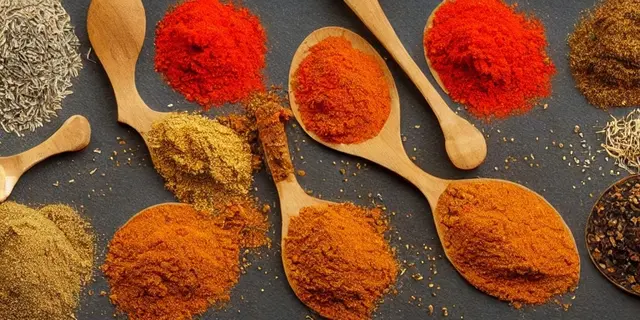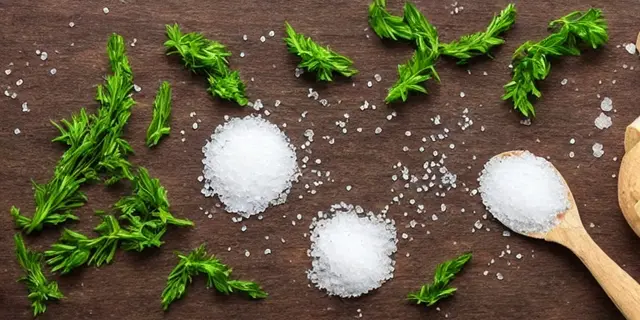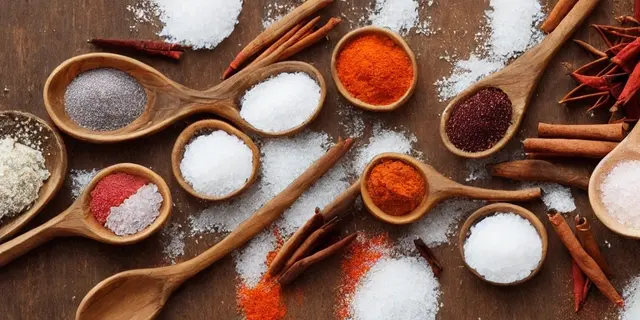Salt is a common ingredient in many dishes and is often used to add flavor to food. But is it a spice or a seasoning? The answer is not quite as straightforward as you might think.
Understanding the difference between these two terms can help you accurately classify and describe different ingredients and improve your culinary knowledge.
Difference between a spice and a seasoning.
To begin with, it’s important to understand the difference between a spice and a seasoning. A spice is a natural plant product that is used to add flavor, aroma, and color to food.
Spices are typically derived from the seeds, fruit, bark, roots, or flowers of a plant, and they can be used either whole or ground. Examples of spices include cinnamon, black pepper, and cumin.
A seasoning, on the other hand, is a substance that is used to add flavor to food. Seasonings can be either natural or man-made, and they can include things like salt, sugar, and vinegar.
Is salt a spice or a seasoning
So, is salt a spice or a seasoning? Technically, salt is a seasoning rather than a spice. It is a naturally occurring mineral that is used to add flavor to food, but it is not derived from a plant like spices are.

Salt can be used either in its natural form or in a refined state, and it is often used in combination with other seasonings to enhance the flavor of a dish.
However, the line between spices and seasonings can be somewhat blurry, and many people use the terms interchangeably. For example, some people might refer to salt and pepper as “spices,” even though salt is a seasoning and pepper is a spice.
Is Salt a Spice or Herb?
Another question that often comes up when discussing salt is whether it is a spice or an herb.

An herb is a type of plant that is used for its leaves, seeds, or flowers, which are used as medicinal properties for food. Herbs can be used either fresh or dried, and they are often added to dishes toward the end of cooking to preserve their flavor and aroma.
Examples of herbs include
- Basil,
- Oregano
- Parsley
- Sunflower
- Musa balbisiana
Salt is not an herb because it is not derived from a plant. It is a naturally occurring mineral that is used as a seasoning in food. Therefore, it is not considered an herb.
However, it is worth noting that some herbs, such as dill and celery, contain naturally occurring salts, which can add flavor to dishes.
Types of Salt
Various types of salt are used in cooking, and each type has its unique properties and uses. Some common types of salt include:
- Table salt: This is the most common type of salt and is often used in cooking and baking. It is a refined salt that is usually made from either rock salt or seawater. Table salt is finely ground and has a small grain size, which makes it easy to measure and use in recipes.
- Kosher salt: This type of salt is named after the process of koshering meat, which involves removing blood from the meat before cooking. Kosher salt has a larger grain size than table salt and is flakier and less dense. It is often used in cooking and baking, as well as for seasoning meat.
- Sea salt: This type of salt is made by evaporating seawater and is often considered to be more flavorful and less processed than table salt. Sea salt can vary in color, texture, and flavor depending on where it is sourced from.
- Himalayan pink salt: This type of salt is mined from the Himalayan Mountains and
Conclusion
In summary, salt is a seasoning rather than a spice or an herb. It is a naturally occurring mineral that is used to add flavor to food, but it is not derived from a plant like spices and herbs.
While the distinction between spices, seasonings, and herbs can be somewhat blurry, it is important to understand the differences between these types of ingredients to accurately describe and classify them.
